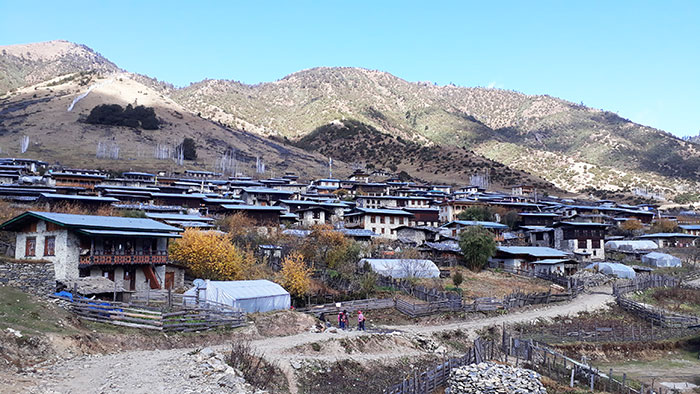No gungtong issue in the gewog
Neten Dorji | Trashigang
With many new constructions, Merak gewog in Trashigang has an increasing number of people settling in the gewog. Many youth are also staying in the villages.
Merak gup Lam Rinchen said about 10 new houses were constructed in the last few years. “No one is leaving the villages.”
He said there are no empty houses (gungtongs) in the gewog. “Many families divide their ancestral land and built houses.”
According to Lam Rinchen, people in the gewog do not send all children to school. “This was the reason why we don’t have gungtong today.”
Highlanders said people didn’t migrate to urban areas when there was no road, electricity and mobile network. “Now with all the basic amenities, people will stay home.”
Tashi from Merak said that many people now own utility vehicles.
Gup Lam Rinchen also attributes the increasing number of households and youth staying in villages to good income opportunities.
He said livestock and forest products and development activities provide lots of opportunities for youth to earn income.
“Most people are now self-reliant and they save about Nu 50,000 in a year,” he said. “Those who own livestock can save about Nu 1 million annually.”
Sonam Yonten, a class 12 graduate, said those who own livestock saves about Nu 70,000 in a month.
The gewog has five chiwogs and most people depend on livestock. The average household income from livestock products ranges from Nu 50,000 to Nu 0.5M in a year.
People also earn a good income by harvesting burl, which is used to make the famous dza products.
The gewog, however, has minimal landholdings. “Only a few villagers own about 50 to 60 decimals of land and a majority of them own about 10 decimals.”
A village elder, however, said there are people who don’t own houses but are staying in others’ houses. “His Majesty The King granted land to us and many are planning to build houses.”
Many people have collected construction materials.


